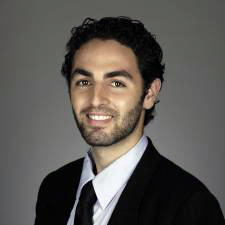bold idea
Empower ordinary citizens to prevent and stop genocide by providing them with tools to educate their communities, lobby their elected officials, and fundraise directly for civilian protection.
organization overview
Genocide Intervention Network (GI-Net) changes the way the United States and the international community respond to the world’s worst crime. GI-Net’s aim is to recruit a committed and diverse group of individuals and communities to form an active network that realizes the “never” in “never again.” GI-Net members educate their communities, lobby their elected officials, and fundraise directly for civilian protection. In 2011, the Save Darfur Coalition and the Genocide Intervention Network merged to become United to End Genocide.
Personal Bio
Mark Hanis, a serial social entrepreneur, is a research fellow with Stanford University’s Center for Human Rights and International Justice. He is co-founding two startups: Inclusive America (a nonprofit to increase diversity in government) and Progressive Shopper (a technology company to harness conscious consumption). Previously, Mark has helped found several social impact organizations: the Beeck Center for Social Impact & Innovation at Georgetown University to engage global leaders to drive social change at scale; the Organ Alliance (now ORGANIZE) to address the unnecessary deaths due to a shortage of transplantable organs; and United to End Genocide to empower citizens and communities with the tools to prevent and stop genocide. Mark also served as a White House Fellow, working in the Office of Vice President Joe Biden as the National Security Affairs Special Advisor for South America, Africa, and Human Rights. He has been awarded several fellowships for social entrepreneurship, including Ashoka, Echoing Green, Draper Richards Kaplan, and Hunt Alternatives Prime Movers, and was named a Young Global Leader by the World Economic Forum. A graduate from Swarthmore College with a degree in political science and a minor in public policy, Mark is a 2006 Echoing Green Fellow.
-
Organization/Fellow Location ?
Our most recent information as to where the Fellow primarily resides.
-
Impact Location ?
Countries or continents that were the primary focus of this Fellow’s work at the time of their Fellowship.
-
Organization Structure ?
An organization can be structured as a nonprofit, for-profit, or hybrid (a structure that incorporates both nonprofit and for-profit elements).
- Visit website
